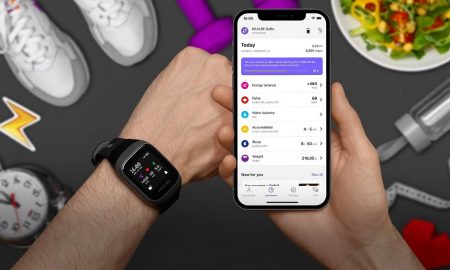
Public vs. Private Health Insurance: What are the differences?

Public health insurance refers to health insurance that has been subsidized or fully paid for by the government. Private health insurance policies, on the other hand, are bought by individuals who want more comprehensive coverage and are willing to pay for that privilege all by themselves.
Sometimes debates over ‘which plan is better’ get heated. One of the fundamental questions raised when evaluating the pros and cons of public and private health insurance packages is whether healthcare should be left in the hands of private investors or if governments should offer universal healthcare.
This article probably won’t put an end to this controversy, but it will undoubtedly help you better understand the big picture. So let take a look at each kind and cover the different features that set them apart.
Public health insurance
 These are health coverages plans that are provided by the government, and they are mostly taken up by low-income individuals or families.
These are health coverages plans that are provided by the government, and they are mostly taken up by low-income individuals or families.
Since the implementation of Obamacare, public healthcare in the US incorporates Medicare, Medicaid, and CHIP (Children Health Insurance Program).
Medicare
 This social insurance program caters to the senior members of society and specific disabled people. It mostly covers those who are above 65 years old.
This social insurance program caters to the senior members of society and specific disabled people. It mostly covers those who are above 65 years old.
Due to the increasing aging population, the overall costs of this program are expected to rise. This is a burden the government must take into consideration and take action if we want to look after the elderly members of our society.
Medicaid
The federal government funds this program in partnership with the states. It offers its services to people from low-income families and serves millions across the country. The healthcare plan was redesigned to include every person whose income was below 133% of the federal poverty level.
CHIP
The Children’s Health Insurance Program caters to families who do not qualify for Medicaid, but they can’t afford to pay for private insurance. It enables low-income families to get affordable healthcare for their kids.
Pros
- It is a lot cheaper than private health insurance – on most occasions, members of these programs will not be required to pay any periodic deductibles and, therefore, they get to enjoy free or low-cost health services.
- It incurs less administrative costs as compared to private insurance companies.
Cons
- There is a lot of bureaucracy involved, which makes the whole system rigid and inflexible on time.
- Many private hospitals do not accept public health insurance.
- Members are limited to a very specific list of healthcare service providers that are covered by the policy.
Private health insurance
 These policies are usually more comprehensive, and they are generally offered by employers or purchased by groups of individuals. Although most people prefer them, private healthcare plans are more expensive, and they require proper financial planning since you will have to make regular premium payments.
These policies are usually more comprehensive, and they are generally offered by employers or purchased by groups of individuals. Although most people prefer them, private healthcare plans are more expensive, and they require proper financial planning since you will have to make regular premium payments.
Employer-sponsored health insurance
Employer-sponsored packages are designed to benefit the employees of a particular organization or firm. When compared to some of the public healthcare packages, these plans are far superior and more generous.
Since the inception of Obamacare, all employers who had over 50 employees were required to provide medical coverage for them to avoid tax penalties.
This, however, affected the wages of the employees since the firms had to cut on costs due to the significant healthcare insurance premiums.
Individual health insurance
 When it comes to personal health insurance policies, the policyholders purchase it to cover themselves or their families. The prices of each plan are different, depending on which coverage you are buying from your health insurance provider.
When it comes to personal health insurance policies, the policyholders purchase it to cover themselves or their families. The prices of each plan are different, depending on which coverage you are buying from your health insurance provider.
Pros
- Private health insurance packages offer the applicants more options to choose from, and they can be customized to suit specialized needs
- Policyholders enjoy access to more health facilities as compared to public healthcare members
- It is more flexible and has less bureaucracy involving payments
- There is a broader network of healthcare service providers to choose from
Cons
- It is costly in comparison to public healthcare programs, and thus not everyone can afford it
- You will be required to pay monthly or annual premiums
Conclusion
As of 2018, the majority of Americans are covered by private insurance plans as compared to those with public healthcare programs. The former is preferred because of its many advantages, especially the flexibility and more extensive variety of plans to choose from. If you don’t qualify for any of the public health insurance policies and aren’t employed at the moment – it is still possible to get insurance. You might have to dig a little until you find it, but there are private policies that aren’t as costly.
More in Motivation
-
`
Is Swimming in Cold Water Good for You?
Swimming is a beloved activity that provides numerous physical and mental health benefits. Swimming can be a fantastic workout, whether you’re...
November 15, 2023 -
`
Unlocking the True Benefits of Detox Water
Detox water has taken the health and wellness world by storm, promising a wide range of benefits that go beyond ordinary...
November 7, 2023 -
`
How Tom Brady Shed 10 lbs After Retirement
One of the NFL’s most celebrated athletes, Tom Brady, has always been a topic of discussion. Brady never fails to surprise,...
November 1, 2023 -
`
AI’s Hidden Toll on Our Brains
Artificial Intelligence (AI) has permeated almost every facet of our lives, from virtual assistants and recommendation algorithms to autonomous vehicles and...
October 24, 2023 -
`
What to Drink During a Workout
When it comes to getting the most out of your workout, proper hydration is key. What you drink during exercise can...
October 17, 2023 -
`
Wearable Technology Applications in Healthcare
The world of healthcare is evolving at an unprecedented pace, and wearable technology is one of the driving forces behind this...
October 10, 2023 -
`
Initiating and Integrating Exercise in Daily Life
Incorporating exercise into our daily lives is essential for maintaining optimal health and well-being. However, initiating a fitness routine and seamlessly...
October 10, 2023 -
`
Jason Momoa’s Workout Routine for Iconic Aquaman Look
We all remember the moment: The big screen lights up, waves crash, and out emerges Jason Momoa as Aquaman, with his...
October 8, 2023 -
`
Crying: The Benefits on Mental Health
In a world that often champions stoicism and emotional restraint, shedding tears is sometimes dismissed as a sign of vulnerability. However,...
September 26, 2023















You must be logged in to post a comment Login